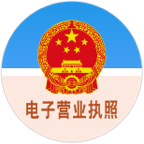Note: The English version is provided below.
英伟达近期在中国市场的动向引发广泛关注。一方面,该公司专为中国市场设计的H20芯片需求激增,促使英伟达向台积电追加30万颗订单;另一方面,这款芯片因潜在安全风险被中国网信办约谈,后续销售面临不确定性。这一系列事件折射出全球科技产业链的复杂博弈。
市场需求驱动供应链复苏
中国AI产业的快速发展催生了巨大的算力需求,阿里巴巴、腾讯等云服务巨头在特朗普政府4月实施禁令前已大量采购H20芯片建立库存,但新增订单仍持续涌入。
工业富联、英业达等代工厂的财报显示,其AI服务器业务年增长率超过60%,印证了市场需求的真实性。
英伟达CEO黄仁勋7月访华时透露,美国政府已批准H20恢复对华销售。这一决定背后是中国市场对英伟达的重要性——2024自然年中国区营收达171亿美元,尽管占比从26%降至13%,但仍是其第四大市场。
半导体分析机构SemiAnalysis数据显示,2024年H20芯片销量预计达100万颗,此次追加订单将补充现有60-70万颗库存。
安全疑虑引发监管介入
然而,H20芯片的复售进程在7月31日遭遇变数。中国网信办发文指出,该芯片可能存在"追踪定位"、"远程关闭"等安全漏洞,要求英伟达提交证明材料。
这一关切源于美国《芯片安全法案》草案内容,该法案要求出口芯片需具备地理位置验证功能。国家安全部此前也警告,境外芯片可能预设后门,存在数据泄露风险。
技术层面,此类追踪功能依赖持续网络连接,一旦芯片被拆解即失效。但监管担忧不无道理:谷歌数据中心已应用类似技术,而强制加装定位系统将增加芯片成本。英伟达虽强调合规性,称通过数字化系统监控产品流向,但显然未能完全消除中方疑虑。
国产替代的加速窗口
在英伟达供应链波动期间,中国本土芯片企业正抓住机遇。IDC数据显示,2023至2024年,中国数据中心加速卡市场国产份额从14%跃升至34.6%。
多位业内人士透露,国内GPU厂商产能已被预订一空。这种替代趋势不仅关乎商业竞争,更是对技术自主可控的追求。
商务部发言人此前表态称,中方反对美方泛化国家安全概念,期待通过磋商纠正错误做法。这种立场反映了中国在维护产业链稳定与保障网络安全之间的平衡考量。
当前局势表明,全球科技产业已进入"安全优先"的新阶段。企业不仅需要应对市场需求变化,还需在复杂的监管环境中证明产品的可信度。
对英伟达而言,能否妥善解决安全质疑,将直接影响其在中国这个战略市场的未来。而对中国AI产业来说,这场风波或许会进一步坚定自主研发的决心,推动算力生态的多元化发展。
NVIDIA's H20 Chip Sees Surge in Sales to China but Faces "Talks" During Emergency Restocking
NVIDIA's recent moves in the Chinese market have drawn widespread attention. On one hand, demand for its H20 chip, specifically designed for China, has surged, prompting the company to place an additional order for 300,000 units with TSMC. On the other hand, the chip has been flagged by China's Cyberspace Administration over potential security risks, casting uncertainty over its future sales. This series of events highlights the complex dynamics of the global tech supply chain.
Market Demand Drives Supply Chain Recovery
The rapid growth of China's AI industry has fueled massive demand for computing power. Cloud service giants like Alibaba and Tencent had already stockpiled H20 chips ahead of the U.S. ban imposed by the Trump administration in April, yet new orders continue to pour in.
Financial reports from manufacturers like Foxconn Industrial Internet and Inventec show that their AI server businesses are growing at over 60% annually, confirming the strong market demand.
During his visit to China in July, NVIDIA CEO Jensen Huang revealed that the U.S. government had approved the resumption of H20 chip sales to China. This decision underscores China's importance to NVIDIA—despite its revenue share dropping from 26% to 13%, the Chinese market still contributed $17.1 billion in 2024, making it NVIDIA’s fourth-largest market.
According to semiconductor research firm SemiAnalysis, H20 chip sales are expected to reach 1 million units in 2024. The latest order will replenish existing inventories of 600,000 to 700,000 units.
Security Concerns Trigger Regulatory Intervention
However, the chip’s resale hit a snag on July 31 when China’s Cyberspace Administration raised concerns that the H20 might contain security vulnerabilities such as "tracking and geolocation" or "remote shutdown" capabilities, demanding NVIDIA provide supporting documentation.
These concerns stem from provisions in a draft U.S.?Chip Security Act, which requires exported chips to include geographic verification functions. China’s Ministry of State Security has also warned that foreign-made chips could contain backdoors, posing data leakage risks.
Technically, such tracking features rely on persistent internet connectivity and become ineffective if the chip is disassembled. However, regulatory concerns are not unfounded: Google’s data centers already use similar technology, and mandatory tracking systems would increase chip costs. While NVIDIA has emphasized compliance, stating it monitors product flows through digital systems, these assurances have not fully alleviated China’s concerns.
A Window for Domestic Alternatives
Amid fluctuations in NVIDIA’s supply chain, Chinese chipmakers are seizing the opportunity. IDC data shows that from 2023 to 2024, the domestic share of China’s data center accelerator card market surged from 14% to 34.6%.
Industry insiders reveal that production capacity at local GPU manufacturers is already fully booked. This shift is not just about commercial competition but also reflects China’s push for technological self-sufficiency.
A spokesperson for China’s Ministry of Commerce previously stated that Beijing opposes Washington’s overstretching of national security concepts and hopes to resolve disputes through dialogue. This stance reflects China’s effort to balance supply chain stability with cybersecurity.
The current situation underscores that the global tech industry has entered a new era where?security takes precedence. Companies must not only adapt to market shifts but also navigate complex regulatory landscapes to prove product trustworthiness.
For NVIDIA, resolving security concerns will be crucial to its future in this strategic market. For China’s AI industry, this episode may further accelerate the push for independent R&D, driving diversification in the computing power ecosystem.
来源: 与非网,作者: 夏珍,原文链接: /article/1870807.html
 芯耀
芯耀




 5654
5654









